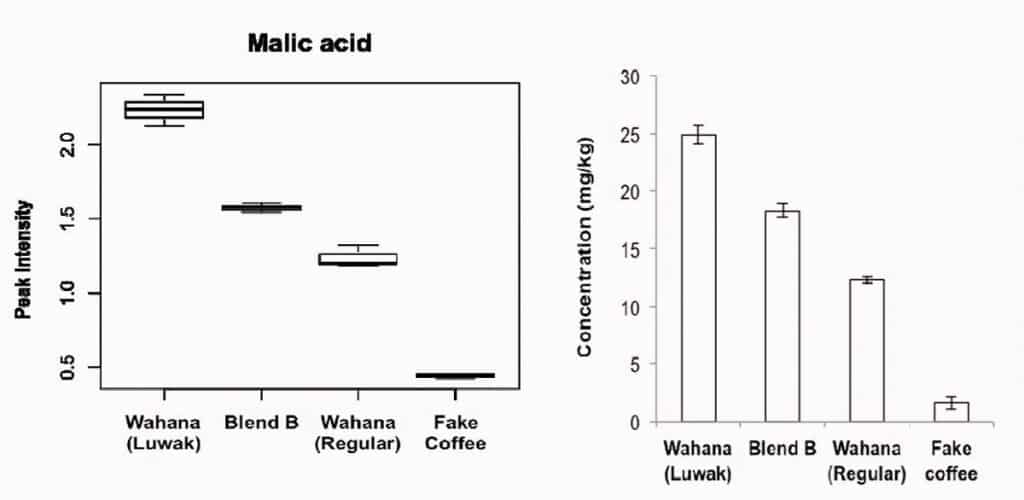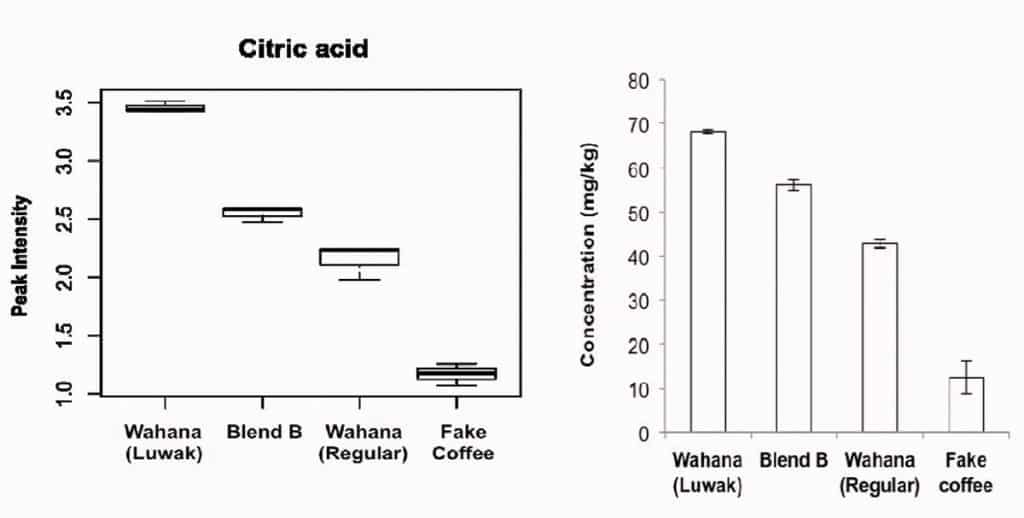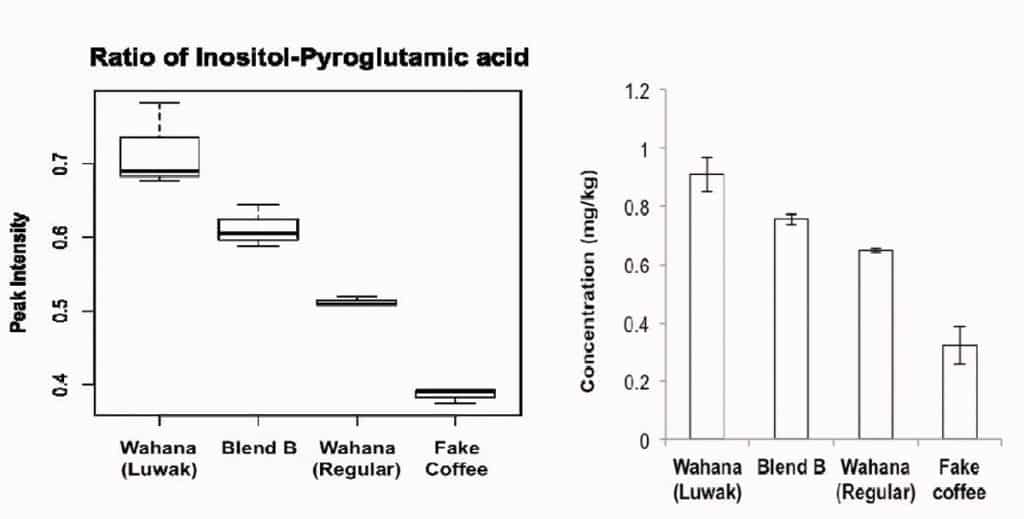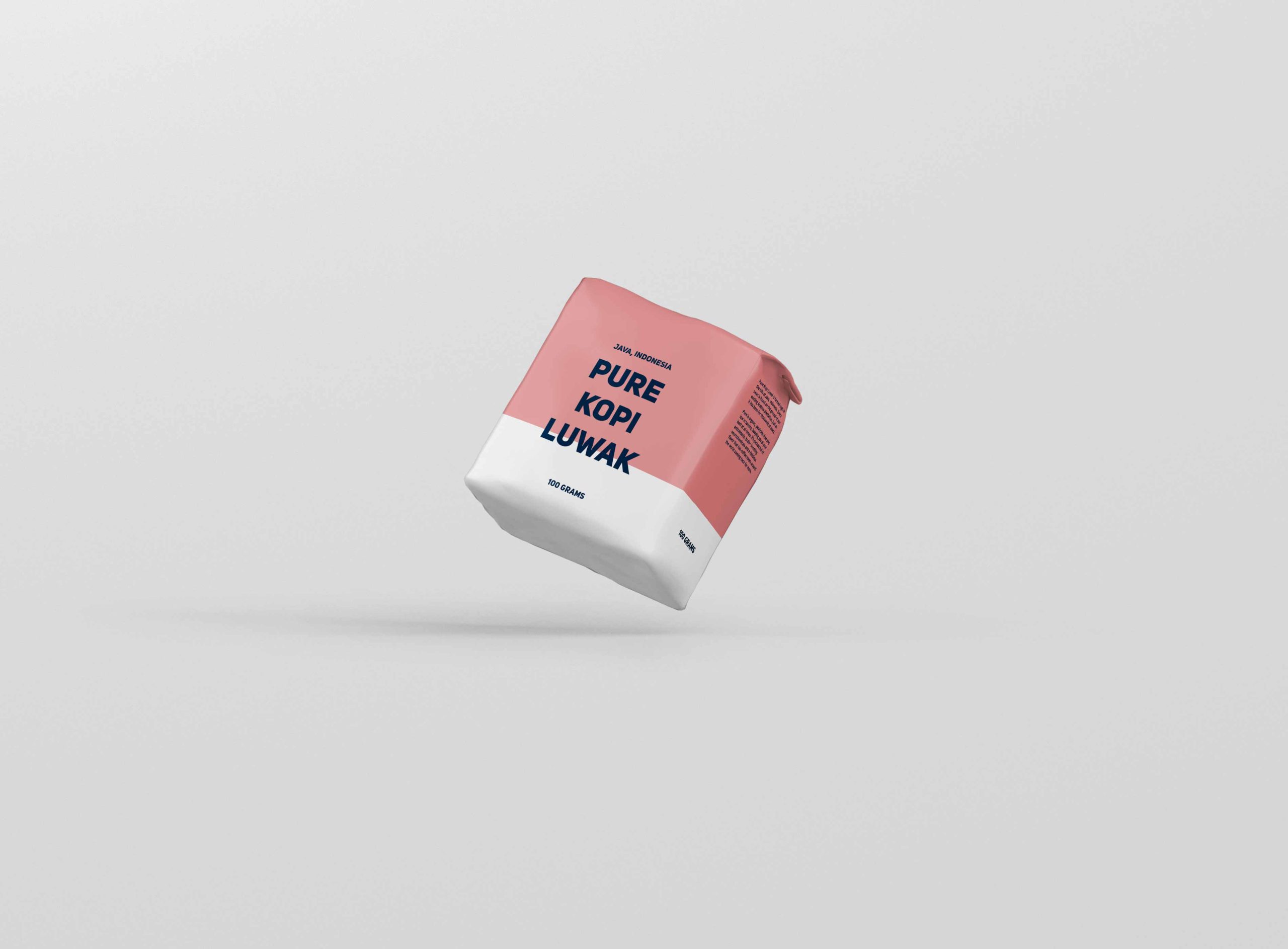Kopi luwak is known around the world for one reason: it gets pooped out before any human even touches it. That’s because kopi luwak refers to coffee beans eaten and digested by the civet cat, a mammal native to tropical parts of Asia and Africa. The beans, collected from the civet cat’s droppings, are used to make a strangely flavorful brew. Who ever knew it would be so tasty?
Yet kopi luwak also boasts a host of health benefits that other types of coffee do not. If you want to see how kopi luwak can increase your energy levels, ward off kidney stones and fight infertility, read on.
What Are The Health Benefits Of All Types Of Coffee?
Before we dive into the specifics of kopi luwak, we should start with an understanding of a few of the health benefits coffee of all types. Let’s look at just two of the main benefits here.
Benefit 1: Coffee Contains Antioxidants
Believe it or not, coffee is the number one dietary source of antioxidants in many countries around the world, including Italy, Norway and the United States. Coffee contains chlorogenic acid (CGA), a polyphenol which is known for a host of benefits, the most appealing of which may be that it lowers blood pressure. There are no shortage of studies touting chlorogenic acid’s anti-inflammatory ways.
Benefit 2: Coffee Fights Diabetes
In 2004, a study of over 2,000 middle-aged people in Taiwan was done to answer the question Does coffee consumption impact the development of diabetes? It did, and in a big way: habitual coffee drinkers were shown to have 38-46% lower risk of type 2 diabetes than non-coffee drinkers.
When you put them together, those are some great benefits. Kopi luwak, though, offers plenty more than regular coffee does when it comes to health benefits.
Results Of The World’s Most Comprehensive Study Of Kopi Luwak
In 2013, researchers from Osaka University and the Indonesian Coffee and Cocoa Research Institute teamed up to study the biological and metabolomics differences between kopi luwak and other types of coffee. They took samples of 21 different coffee beans, including regular Arabica and Robusta beans, fake kopi luwak made using a synthetic process, and different blends of kopi luwak beans and regular beans. What the researchers discovered was quite exceptional: the health benefits of kopi luwak far exceed those of any other type of coffee.
At the end of that report are three charts demonstrating three particularly important health benefits the researchers identified in kopi luwak. Let’s start our investigation there.
Kopi Luwak Benefit #1: Malic Acid
Malic acid is an organic compound made naturally by all living organisms. It is known for its ability to rapidly increase energy and tolerance to strenuous exercise and muscle pain, which is why it’s often given as a supplement for chronic fatigue syndrome.
According to the Journal of Nutritional Medicine, malic acid aids in the Krebs cycle, our body’s process of metabolizing fats, carbohydrates and proteins into usable energy in the body. The Journal of Rheumatology agrees: exogenous malic acid (malic acid ingested from outside the body, such as through kopi luwak) helps the body to make ATP, the body’s energy, more efficiently.

Pure kopi luwak has more malic acid than any other type of coffee tested
As you can see in this chart (taken from the study mentioned above), there are significantly higher levels of malic acid in kopi luwak than in other types of coffee. (Note: kopi luwak is shown on the far left of the chart, with a blend of kopi luwak and regular beans next to that, then just regular beans, and finally fake coffee on the far right.) Experts believe this is why kopi luwak gives a smoother, longer-lasting boost of energy than other coffees.
Kopi Luwak Benefit #2: Citric Acid
Citric acid is an organic compound that occurs naturally in the human body (in small quantities) and in citrus fruits like lemons and limes (in larger quantities). Just like malic acid, it also plays a major role in the Krebs cycle, which means boosted levels of citric acid give you more energy.
When citric acid is metabolized by the body, it actually increases the body’s pH levels, making it more alkaline. That’s exactly why many people on an alkaline diet—a diet adamantly supported by people like Tony Robbins—add lemon to their water in the mornings; contrary to what you may think, adding citric acid to your diet makes your body more alkaline, and thus stronger and more capable overall.

Pure kopi luwak is packed with uber-healthy citric acid
This chart shows that kopi luwak clearly has much more citric acid than any of the other coffee types tested. Here are three more benefits of citric acid:
- Combats the development of kidney stones
- Defends against osteoporosis by strengthening bones
- Increases iron absorption
Kopi Luwak Benefit #3: Inositol
Inositol is a natural sugar alcohol made naturally in our kidneys and found in plenty of other foods. Inositol is essential in building cell membranes and acts as a “secondary messenger” in your nervous system, which means it increases the impact of neurotransmitters in your brain. That’s a really good thing.
Many women are familiar with inositol because of all the research that’s been done into its effects on treating polycystic ovarian syndrome (PCOS). PCOS affects between 5-20% of women and, as this review of twelve studies explains, “PCOS is the most common cause of anovulatory infertility in industrialized nations, and it is associated with insulin resistance, type 2 diabetes mellitus, and increased cardiovascular risk.” In other words, you want to take any steps you can to reduce your chances of PCOS. Fortunately, the same study review goes on to explain that inositol “is capable of restoring spontaneous ovulation and improving fertility in women with PCOS.”

Pure kopi luwak is full of inositol, which helps the body in numerous ways
These are only the beginning of the benefits of inositol—it’s been shown to combat depression, anxiety and obsessive compulsive disorder, too. The chart above shows the ratio of inositol to pyroglutamic acid in kopi luwak, though to keep things simple, just think of it as the amount of inositol in the coffee. Again, kopi luwak comes out ahead of every other type of coffee by a long shot, meaning you get a much bigger boost of these benefits when you drink kopi luwak than you do with other coffees.
Kopi luwak has significantly more malic acid, citric acid and inositol than any of the other coffee types tested, research shows. With all of this talk about acid, you might think that kopi luwak would be quite a bitter-tasting coffee, though in reality, that’s not even remotely true. As this study shows, there is no correlation between the pH of coffee (its scientifically-measured acidity level) and how acidic it tastes in the human mouth. In fact, the coffee brew that tasted the most acidic of the nine types observed in that study was actually the least acidic (it had the highest pH value) of them all.
On top of all that, coffee experts praise kopi luwak’s natural fermentation process, which occurs inside the civet, because it yields a coffee that tastes much smoother and less acidic than other types of coffee.
This is only the beginning of the health benefits of kopi luwak, though we don’t have space to mention all of them here. Still, the basic principle of kopi luwak is simple: while maintaining all of the health benefits of other types of coffee, it has a whole host of its own, making kopi luwak one of the healthiest coffees in the world.
Kopi Luwak FAQs
How Does Kopi Luwak Taste?
Since every kopi luwak bean has been digested by a civet before it reaches your cup, it has a highly unique flavor. As the civet digests the coffee beans, proteins are broken down and leached out of the bean. Since proteins are what make coffee bitter, the low-protein kopi luwak is probably the least bitter of any coffee you’ll try. Instead, many people describe the taste of kopi luwak as earthy, syrupy, smooth, and rich with chocolate and jungle undertones.
On top of that, every coffee connoisseur knows that wet processed or fermented beans are of higher quality and superior flavor than dry-processed beans. Numerous studies have shown that in wet processing arrangements, lactic acid bacteria are the preferred method of fermentation; lactic acid also happens to be the major colonizing bacteria in the civet’s digestive system. It’s a match made in heaven.
How Much Caffeine Is In Kopi Luwak?
For the same reason as why kopi luwak has such a unique flavor profile (see above), it also has about half the caffeine as a regular cup of arabica coffee and about one-quarter of the caffeine in a cup of robusta coffee.
Is Kopi Luwak Safe To Drink?
Yes, kopi luwak is completely safe to drink. The people of Southeast Asia have been drinking kopi luwak for hundreds of years without having a problem. Our beans are washed liberally multiple times after being collected, so they’re extremely clean and safe. The roasting process adds an additional layer of care, as the high heat of the roast eliminates any bacteria that might’ve made it through the washing process.
How Should I Store My Kopi Luwak?
You should store kopi luwak the same way you’d store any coffee: in a cool, dry place away from direct sunlight, making any pantry or kitchen drawer a good place. Our kopi luwak comes in a specially-designed package to keep your beans fresh as long as possible.


1 replies on “Kopi Luwak Health Benefits: Why Civet Coffee May Be The Healthiest In The World“